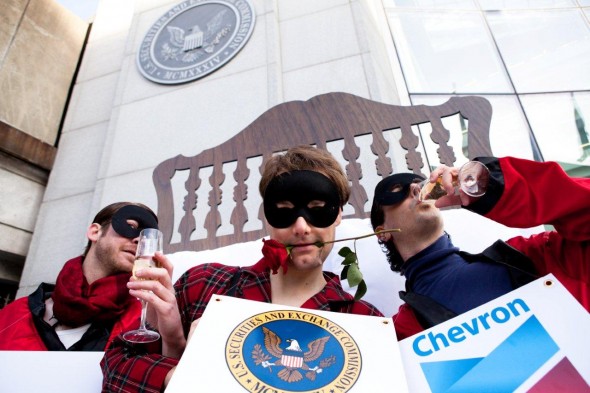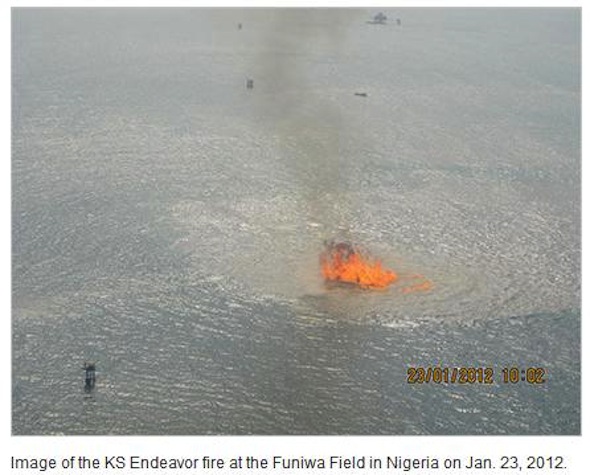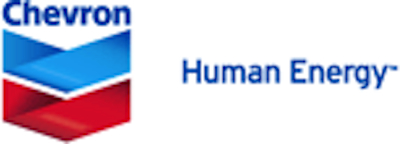Two steps forward, one step back
The Extractive Industries Transparency Initiative (EITI) adopted new standards intended to increase transparency in the oil, gas and mining industries. The new rules were announced in Sydney ahead of the EITI board meeting. Ironically, several of the major oil companies who sit on the EITI board are part of a U.S. lawsuit that seeks to weaken transparency legislation in the U.S. Inter Press Service describes the “disconnect”:
On the one hand, several of the world’s largest oil companies – including ExxonMobil, Shell and Chevron – sit on the EITI board and are thus inferred to be in agreement with the newly revised transparency rules.
On the other hand, these companies are currently part of a lawsuit here attempting to dismantle Section 1504 of the Dodd-Frank Act, the legislation on which the new EITI standards are mostly closely based.
China, Nigeria and oil
Oil’s curse sends millions abroad in search of opportunity.
I’m back from China where I spent a few weeks working with the Nigerian community of Guangzhou on a project that has nothing to do with oil. That said, oil came up in virtually every conversation I had with Nigerians: The oil money that has corrupted the country, killing off business enterprise and agriculture. The oil pollution that has ravaged the Niger Delta for decades, ruining countless lives and the environment.
Many people asked me when I would go to Nigeria to report on that country’s oil curse. Over and over again, people asked me why the BP Deepwater Horizon disaster was covered by the media and — most importantly — cleaned up, while the Niger Delta disaster is left untouched and rarely gets mentioned in the international press.
From one disaster to another
The two year anniversary of the Deepwater Horizon explosion is just a days away, and as Bryan Walsh from Time magazine puts it, the “oil spill seems to divide people into two categories: those who can’t forget, and those who refuse to remember. In the first camp are Gulf Coast residents and environmentalists who say the region still hasn’t recovered from the worst oil spill in U.S. history, and who are still waiting to be made whole—as BP once promised. In the second is much of the oil industry and many Republicans, who like to complain that offshore drilling has slowed under President Obama, yet seem to forget the multi-billion dollar damage that the oil spill left, and the months it took to repair the Macondo blowout.”
You can read more in his article, Nearly two years on, did the BP oil spill have to happen to BP?
And while we’re wondering about the inevitability of BP’s spill, Total’s North Sea gas leak appears to be much worse than originally reported:
Sitting on a powder keg of highly flammable natural gas and gas condensate, the French oil major’s rig could be one of the worst oil disasters in the North Sea. A gas cloud, made mostly of methane, has essentially enveloped the rig after attempts to shut a troubled production failed and caused a leak. If this cloud — which is growing by roughly 200,000 cubic meters a day — ignites, it could be catastrophic.
Clearly, the potential for human and environmental tragedy is the paramount concern here, much as it was with BP’s Gulf of Mexico disaster.
Chevron says Nigerian rig fire extinguished
After suggesting that the rig fire off the coast of Nigeria could burn “for months,” Chevron has announced that it is no longer burning.
Apparently the fire stopped burning by itself several days ago, as gas was no longer flowing from the well. I have read differing accounts about why the gas stopped leaking, but at this point Chevron can’t guarantee that this is the end of the story. The company is continuing with relief well drilling.
There is still no information available on environmental damage or compensation for fishermen and villagers who say that both their livelihoods and their health have suffered as a result of the 45+ day fire. For more than one month now, there have been news reports of tests to determine contamination levels. But we’ve yet to see any results.
Chevron’s Endeavour rig: the story changes, but the fire still burns
Al Jazeera report February 4, 2012
First there’s news of a rig fire, which turns out to be much more than just a fire. In fact, it’s an exploratory gas well burning uncontrollably. That’s called a blowout and it’s what happened to the Macondo well in the Gulf of Mexico. The well spews oil or gas until it can be “killed.”
Chevron, the owner of the Endeavour rig, does not use the term blowout. But the company did admit that drilling a relief well would be necessary to cut off the flow of gas. A few days ago, company officials announced that drilling of the relief well had started.
Now, we have an update from the BBC. Speaking to a BBC reporter, Chevron spokesman Lloyd Avram has acknowledged that, “A gas-fuelled fire, with flames as high as 5 meters, may burn for months in waters off the Niger Delta in south-east Nigeria.”
Nigeria: Chevron starts drilling offshore relief well
For more than one month, the Chevron Funiwa 1A gas well has been burning uncontrollably off the coast of Nigeria.
I posted some information about this rig fire, caused by an apparent well blowout on January 16th. The fire claimed the lives of two rig workers. On January 26th, Chevron announced that the company was, “finalizing plans to commence drilling two relief wells.”
The transparent hypocrisy of big oil

S.E.C. in bed with the oil companies? Oxfam event in front of S.E.C., February 10, 2012. Photo: Oxfam America
Ian Gary at Oxfam America has posted another excellent piece on the shameless hypocrisy of oil companies now pressuring the S.E.C. to water down parts of the 2010 Dodd-Frank financial reform legislation. (Read my blog post from yesterday for more background on this story.) Here’s the article cross-posted from Politics of Poverty:
The yawning gap between the transparency rhetoric of companies and the reality of their actions has never been more apparent than it is now.
The oil and gas industry loves to trumpet their support of international transparency initiatives and their tax contributions to the US government, but when a new law requires them to tell the public exactly how much gets paid to whom around the world, they bring out the lobbyists and lawyers.
Browse through the corporate social responsibility reports of the top oil and gas companies, and you’ll see them singing from the same transparency hymnbook. Chevron says it “believes that the disclosure of revenues received by governments and payments made by extractive industries to governments could lead to improved governance in resource-rich countries.”
Nigerian well blowout? Chevron to begin drilling relief wells
In the coming days I plan to post a few short pieces with additional information on offshore drilling oversight (or lack of), the subject of my recent article on iwatch news.
In the meantime, though, I want to put up a quick post about the Chevron rig that has been burning uncontrollably off the coast of Nigeria since January 16th.
Chevron in the News
I don’t write much about Chevron, as ExxonMobil is the lead-operating partner on the Chad/Cameroon Development Project. But Chevron is one of the consortium members, with a 25% ownership stake in the venture.
This week’s East Bay Express features an article by Peter Asmus, The Case Against Chevron. The article describes an unprecedented campaign by nonprofit groups targeting Chevron’s global operations.
The article doesn’t mention Chad or the pipeline; activists working on the Chad/Cameroon Development Project usually focus their attention on ExxonMobil. But it’s worth reminding people that the Chad Oil Project includes three private partners: ExxonMobil, Petronas and Chevron.
I found Asmus’ article interesting as he devotes part of it to discussing if and how Chevron can become part of the solution, including what he calls, A 12 Step Program for Chevron.
A similar program could be drawn up for the Chad/Cameroon Development Project. The challenge, of course, is getting a company as powerful as ExxonMobil to hear, let alone, heed the call for change.







